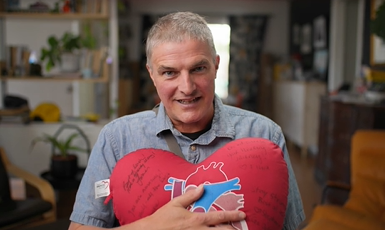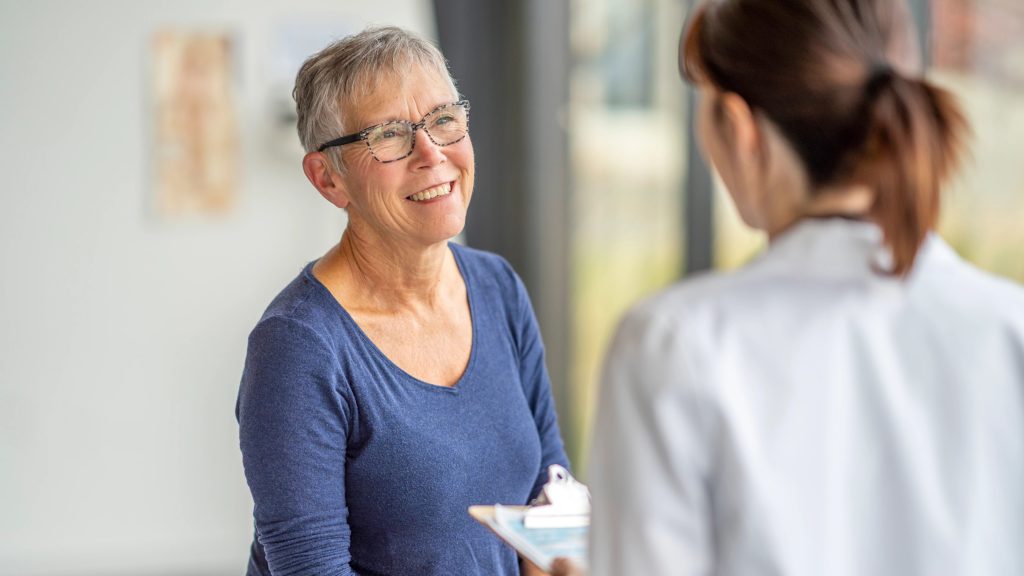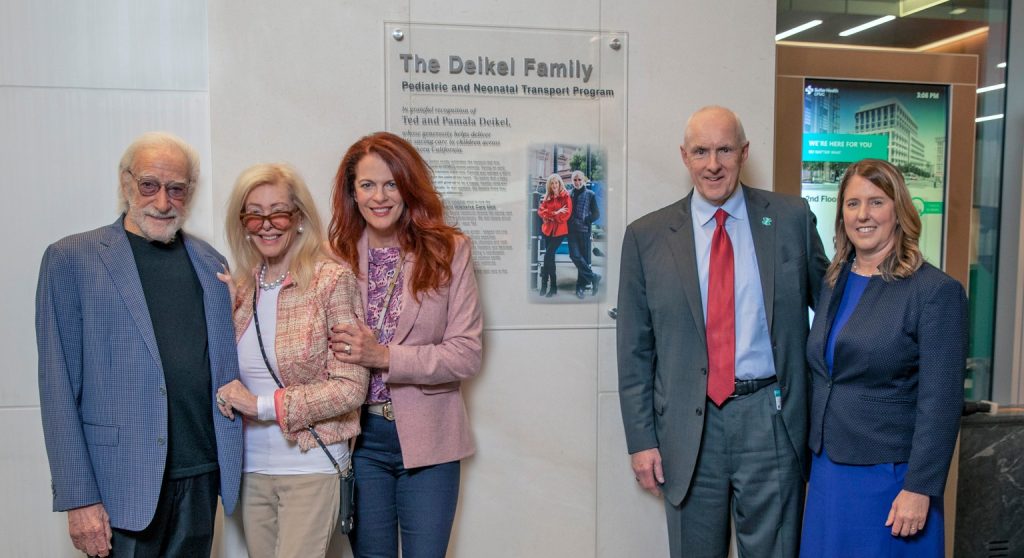By Clayton Warren, Vitals contributor
“When I close my eyes and think about what I could have missed, I see my family my wife Fiona, my kids Theo and Oscar. I would have missed out on just being with them.” — Christopher Dowd.
It started as an ordinary morning last Spring. Christopher Dowd had just woken up when he collapsed on the bathroom floor at his home in Richmond, Calif. His dogs barked, his kids rushed in, and his wife Fiona called 911. When the paramedics arrived, they immediately recognized the 54-year-old’s irregular heart rhythm and made a critical decision: “We’re going to Oakland.”
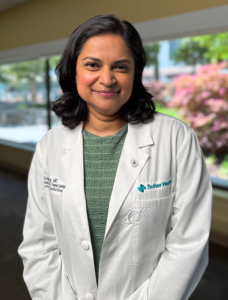
Dr. Sonia Garg
That choice likely saved his life.
“When Chris arrived at Sutter’s Alta Bates Summit Medical Center —Summit Campus, he was having a severe heart attack and was as sick as a patient can get,” recalls Dr. Sonia Garg, an advanced heart failure specialist with Sutter East Bay Medical Group who practices at Alta Bates Summit in Oakland. “He was rushed to the Cath Lab, where two blocked arteries were treated with four stents.”
The Cath Lab team quickly intervened to address blockages in Dowd’s coronary arteries. After the procedure, he was transferred to the intensive care unit, where his recovery seemed promising. During rounds, he spoke about his 18-year-old son choosing between colleges in San Diego and Santa Cruz, joking about which would be the “party school.” He was grateful for the care that allowed him to be there for his son’s future.
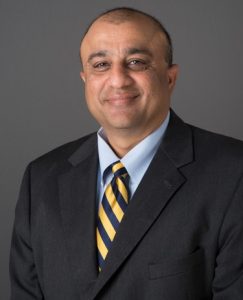
Dr. Junaid Khan
But just twenty-four hours later, Dowd faced a devastating complication —a ruptured papillary muscle inside his heart.
“The rupture meant his mitral valve couldn’t close, and blood was flowing backward. He was in cardiogenic shock and imminently going to die,” recalls Dr. Junaid Khan, a thoracic and cardiac surgeon and director of Cardiovascular Services at Alta Bates Summit. “The team replaced the valve—a complex, high-risk surgery. In Chris’s case, every advanced technique Alta Bates Summit could offer, including ECMO* support, valve replacement, multiple surgeries and continuous critical care was provided.”
From the emergency department to the cath lab, ICU and operating room, Dowd was surrounded by caregivers—nurses, respiratory therapists, perfusionists, cardiologists, cardiothoracic surgeons and more.
“When someone gets that sick, a lot of different teams have to come together,” says Dr. Garg. She explains that this collaboration is “the purpose of having a multidisciplinary cardiovascular team like the one at Alta Bates Summit.”
One ICU nurse even created a journal to capture moments Dowd couldn’t remember. “It was a small gesture, but it means so much to me,” he says.
“Sutter Health bringing such high level of cardiovascular care to the East Bay community really speaks highly to what the people here really want to do,” says Dr. Garg. “It’s not just about the patient. It’s about their family and the lives that they touch, the change and the difference that they make in their community.”
Today, Dowd is home, wearing a life vest for protection and watching hockey with his family.
“I see things differently now,” he reflects. “There’s an opportunity for me to be a better person, to make the people who cared for me proud. I want them to know—it’s worth it.”
*ECMO is an abbreviation for extracorporeal membrane oxygenation, a life-saving machine that acts as an artificial heart and lungs to circulate blood, adding oxygen and removing carbon dioxide for patients with severe heart or lung failure.

